What is Humza Yousaf's big plan for Scotland?
- Published
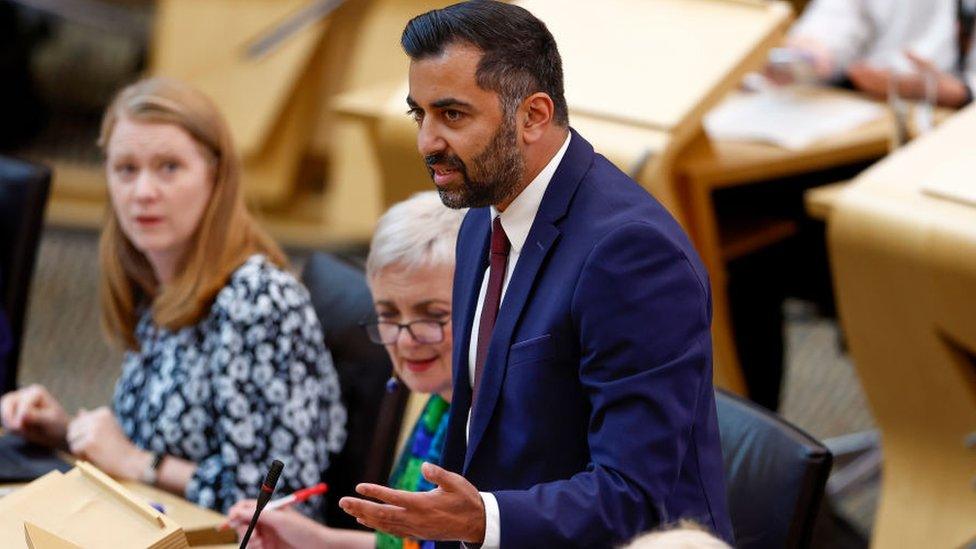
Humza Yousaf has outlined his plans for the year ahead at Holyrood, with a heavy focus on expanding childcare provision.
What does his first set of legislative plans tell us about Scotland's new first minister, and the factors shaping his government?

Poverty is top priority
If we stand at the beginning of the Humza Yousaf era at Holyrood, then this speech was one of his first chances to lay out the defining mission of his government.
He entered office proudly wearing the mantle of the Nicola Sturgeon continuity candidate, but swiftly moved to ditch some of the more challenging policies hanging over from her time in power.
So what has he replaced them with?
It has been clear since the leadership campaign that social justice is Mr Yousaf's number one priority.
That has continued with talk of the moral imperative of eradicating poverty, and how his faith underlines that you are "not a true Muslim if you have a full stomach while your neighbour goes to bed hungry".
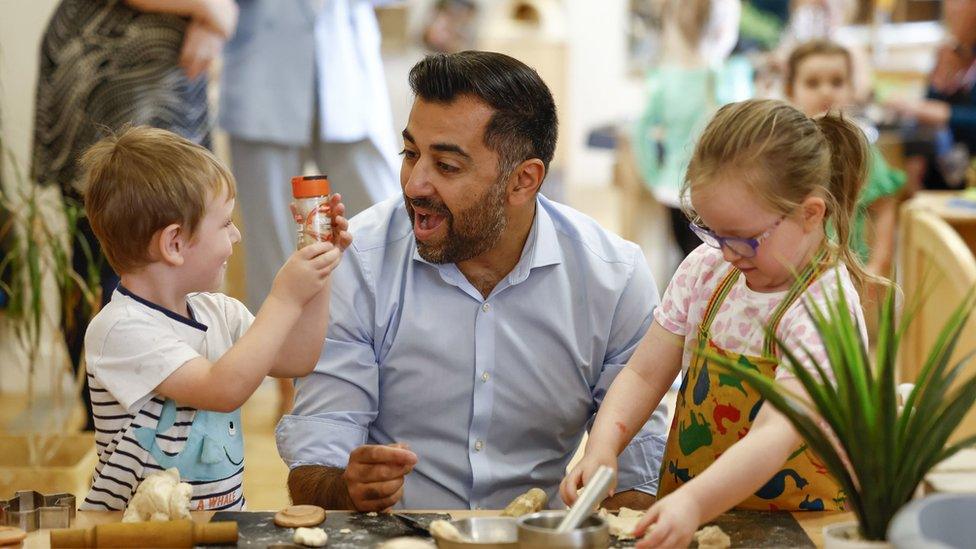
Humza Yousaf has put childcare at the heart of his social justice plans
His key idea is that expanded childcare provision is the best way to support families - creating a virtuous circle which helps parents into work, which in turn boosts the economy, providing more cash to support more people.
So a long-running project to roll out free childcare hours to younger children in a more flexible manner is continuing, with pilot projects for care from nine months old right through to the end of primary school.
And to make sure there are staff to provide these services, Mr Yousaf has targeted the recruitment of a thousand more childminders by 2026.
He has also added to the stack of pay deals agreed this year - this time funding for care staff in the private, voluntary and independent sectors, who will get £12 an hour from next April, bringing them more into line with public sector staff.
Growth matters too
These support packages and pay deals cost money. Lots of it, potentially.
An extra billion pounds will go towards the social security budget in the coming term - a budget line which is swelling year on year given the government's more generous approach to welfare.
That is the choice ministers have made. They also have to choose how to pay for it, and there has already been much talk of "difficult choices" ahead.
My Yousaf has talked with pride about the government's redistributive approach - of asking those on higher incomes to pay more, to fund services targeted at those who are struggling.
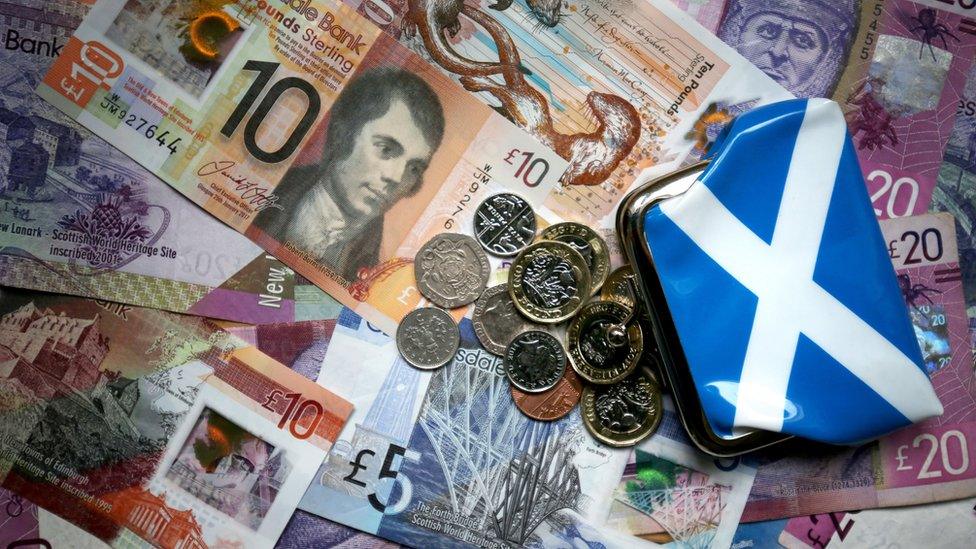
But a new note of caution has crept in. He is also acutely aware of the impact of tax hikes on productivity and the overall size of the tax base, and of the potential issues of a yawning gulf between regimes north and south of the border.
Mr Yousaf seems to appreciate there is a delicate balance to be struck here. He now says he is "unashamedly anti-poverty and pro-growth".
The first minister has made a big play of wanting to reset the government's relationship with business, having held out an olive branch by scrapping plans for an alcohol advertising ban.
The overtures continued in this programme, with talk of a review of business rates and Mr Yousaf highlighting the importance of "economic growth for a purpose". That is perhaps a nod to his Green partners, who don't agree with GDP growth as a target in and of itself, but it also underlines that he sees this as a means to an end.
We will hear more at the budget in December, but Mr Yousaf seems to have concluded that a more business-friendly path is necessary to pay for the poverty-alleviating schemes at the heart of his vision.
Budgetary headaches
Frankly this felt like the programme of a cash-strapped government.
The first minister was explicit about the economic challenges he faces - as well as what he views as the cause of them, in the approach of successive UK governments including the Liz Truss mini budget which was unfolding this time last year.
There were no big new spending commitments among his plans, and the detail of how any of it will be paid for has been deferred until December. Shona Robison has an unenviable task in her first budget as finance secretary.
Furthermore, what was announced seems to be quite targeted, or is being phased in gradually.
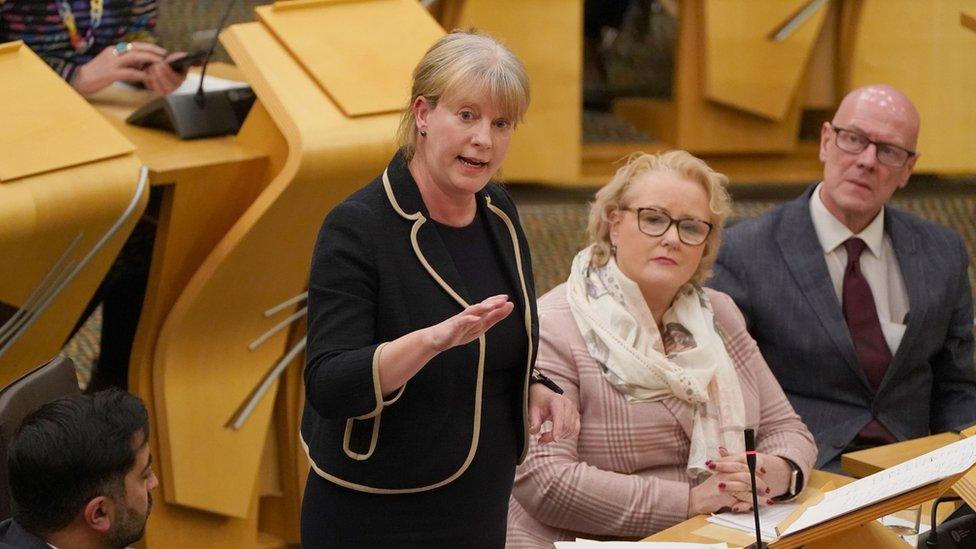
Shona Robison knows she faces tough decisions in drawing up her budget
Free childcare hours are being extended to two year olds across the country, but first to "those who will benefit most".
The pilot of expanded care from nine months through to the end of primary school will run in "specific communities in six local authority areas".
There is a debate about universalism - whether state support should be targeted at those who need it most, or also available to the well off. Should the children of millionaires also get free school meals?
For primary schools at least, the government's answer to that is still yes - but they are at the back of the queue.
Ministers are still committed to free school meals for all P6 and P7 pupils - but they will be rolled out to those in receipt of the Scottish Child Payment first, by 2024, and everyone else by 2026.

Free school meals are being rolled out on a targeted basis to start with
Legislative logjam
If Mr Yousaf is short on money, he is also relatively short on time.
That may sound odd with three years to run in the Holyrood term, but legislation takes time to pass and the pipeline is already fairly jammed.
Radical reforms in the mould of the National Care Service take years to work through - that has gone across the desk of almost every Holyrood committee, with changes continuing to be made no end currently in sight to even stage one of the process.
Mr Yousaf's programme proposed fourteen "new" bills.
But several of them were already in progress from last year's programme, including the education bill to set up new schools agencies, and the housing bill to introduce rent controls.
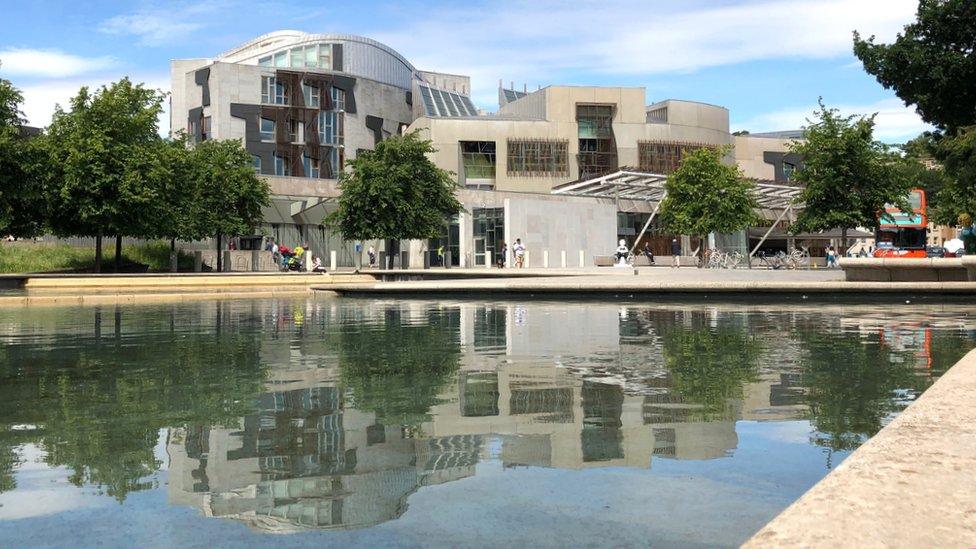
Midway through the Holyrood term, there is already a lot of legislation under consideration at Holyrood
Almost all of the others were already the subject of consultations, having been trailed in last year's programme - like the land reform bill and the plans to crack down on misogyny. A lot of the groundwork has been done on them already.
This has left Mr Yousaf open to criticism that he is the continuity candidate after all, and is just plodding along with the agenda Nicola Sturgeon had drawn up.
He would contend that he can make radical reforms using existing legislation, and doesn't need to add a raft of weighty new bills which could potentially require others to be scrapped.
He has promised a few consultations of his own, with a high-profile example being a mooted ban on the sale of single-use vapes.
But legislation to actually deliver that may well be a few years away - and with the prospect of another row with UK ministers over Internal Market Act impacts, it could be squeezed in a big build-up of bills come the 2025-26 endgame of this term.

Work will begin which could lead to a ban on disposable vapes...eventually
Independence
There is one other thing which Mr Yousaf stressed would be a big priority in his leadership campaign - independence.
Fresh from attending a rally outside parliament at the weekend, his Holyrood speech made clear that the issue is always there in the background.
Early on, he stressed that he will "never stop believing that decisions about Scotland should not be made by a government based in Westminster, but by the people of Scotland".
Oddly enough that delighted Douglas Ross, as it allowed the Tory leader to sing his favourite song about the SNP being obsessed with independence above health, education and every other issue.
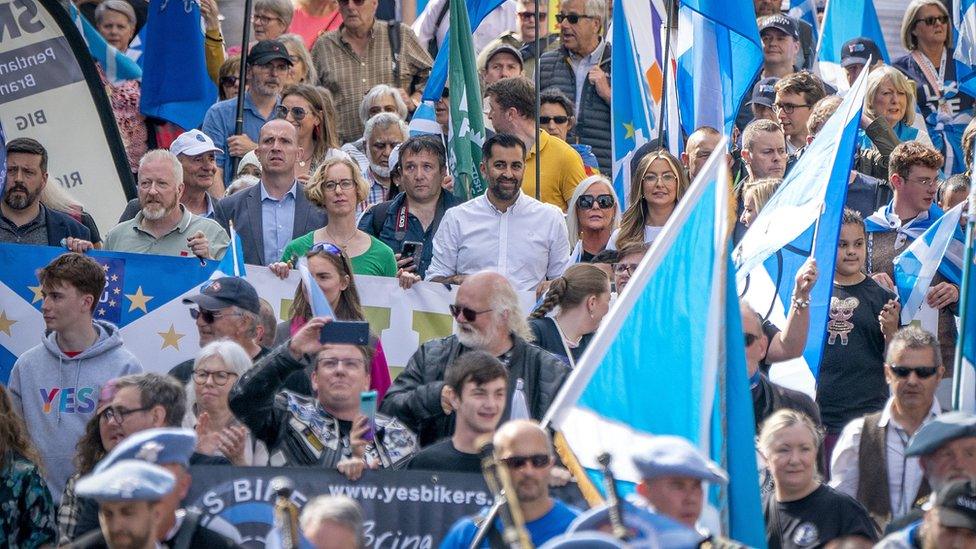
Humza Yousaf led an independence rally outside Holyrood at the weekend
Both leaders are really building their constitutional arguments for the next election, rather than anything that will happen at Holyrood.
This time last year Nicola Sturgeon was promising a referendum bill, with a target date of 19 October 2023.
But the ruling in the Supreme Court case she pursued means there is no prospect of such a bill passing without a deal with UK ministers, and there was no mention of one in Mr Yousaf's programme.
So October will instead be marked by his first SNP conference as leader, where members will debate his strategy - which is essentially to see what the next general election does to change things.
That election is likely to dominate the debate in the coming months, as Labour leader Anas Sarwar demonstrated by essentially giving a stump speech when his turn came in the chamber.
It may be the case that factors beyond Holyrood end up having just as big an influence on Humza Yousaf's tenure as first minister as anything he announced in his first programme for government.
- Published5 September 2023
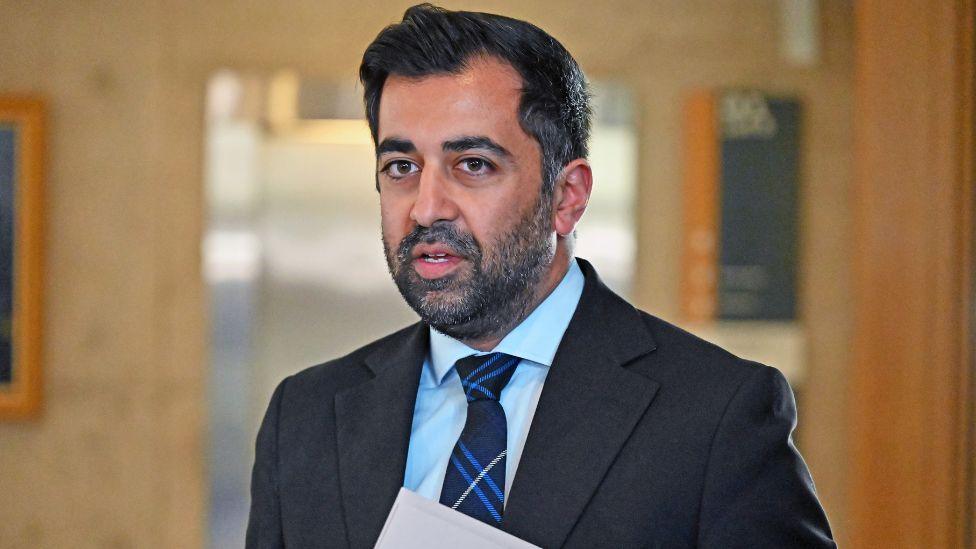
- Published5 September 2023
